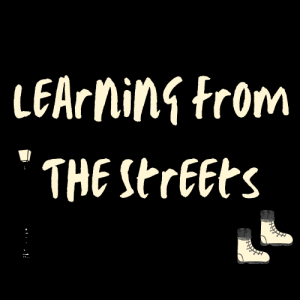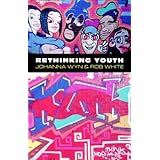‘Are you sure, after all, Christians are all, well, nice- arent they?’
‘that sort of thing couldnt happen in a church.. could it?’
Last week I wrote a piece on ‘Why do Youthworkers leave churches’, which got a bit of a reaction. The Key factors in the process of when somebody leaves a role in a church, and in reality, in any form of work, is that it is either down to the person doing the job, or the conditions in the workplace. And so, it might be worth a discussion about whether ‘working’ for a church, or christian affiliation/organisation is ‘like any other job’, often it isnt.
If you want to re-read the piece on youthworkers leaving churches it is here: ‘Why do Youthworkers leave the church?’
As a reminder, what that piece said boiled down to a difference of vision and mission motivation – youthworkers wanting to take risks, congregations settling for well being settled, issues around management ( and ive written about this often), the drift to the green grass of the parachurch, the vocational drift to the vicar school, and finally burnout, when the youthworker runs out of ideas, passion, energy, and confidence. So some of these relate to the youthworker themselves, and others its the setting and organisation.
Over the weekend, at the general synod, a large gathering at the church of England, along with a vote on transgender inclusion, much discussion was on the conditions of work for clergy, and also putting things in place to help with them, in terms of pastoral support, counselling and building on their networks and resilience. On one hand, it is good to have a discussion about support and resilience within clergy, and as well within youth workers. However, what resilience can end up being is putting the onus of finding the support to cope with the culture and structure on the individual person. The culture and structure in effect gets a ‘get out of jail free’ card. The yolk and burden rest on the worker to cope.
However, this is not a post about resilience.
This is a conversation about something that didnt appear in that previous post. It is about the reality, that even in places of Christian ministry that people can be bullied, emotionally abused and hounded out of workplaces. That people can suffer within places of ministry that are to ‘support and love’ others, but treat employees and workers with nothing short of the kind of behaviour, that in an office would go before a tribunal, a union or a grievance procedure. The kind of behaviour that actually no amount of ‘resilience’ strategies is likely to be able to cope with.
in short, people leave christian ministry because they are bullied out of it. And can be a reason why youthworkers leave churches.
And there might be a myriad of reasons why this happens.
But they are all the responsibility of the organisation, its culture, its expectations, its actions and also its policies, governance and values. As well how personalities drive cultures to acceptable behaviours, and if personality culture is rife, then if a person doesnt fit, for whatever reason then the organisation will find a way to make their life, their ministry, their work unbearable.
To make matters worse, what also then tends to happen is that the abuser, even within a christian culture, will shift the responsibility back on to the person, the victim. Saying things like ‘if you pray more, im sure youll be able to cope’ or ‘if only you tried harder with that person, im sure theyll change eventually’ or ‘why dont you change?’ – in effect the culture and organisation and church maintains its absolved responsibility, and the abused now has it and the situation to deal with.
Also they might be encouraged not to say something, because, it might discredit the ministry of the church or organisation in the town, or make the newspapers, or put someone elses ministry and their future at stake – ‘and that wouldnt be very christian to do’ – so better to suffer alone, and let the bullies win.
Imagine for a moment that you are working for a church, or faith organisation and every indication is that you are being bullied, either emotionally, physically or spiritually by people within it. What are your options? Especially if you are fairly new, or near the bottom of the hierarchical ladder, and even that you are employed in the church – where others in the congregation are givers and financial contributors. What you have is more at stake by voicing a concern, because your ministry and role is at stake. In addition, in most Christian contexts, interpersonal conflicts are done pretty badly, so there is a tangible amount of fear in vocalising something, for fear it wont be treated correctly. And sadly, this has been the case, and continues to be. I know of too many people who had no choice but to leave faith organisations, because they had been hounded out, with no where to turn, when i say too many, one person is too many, and i know more than one. And there neednt be a wait until there are bucketloads to do something about it.
Bullied out of christian ministry, because their face didnt fit, they didnt conform, they asked too many questions or for something else completely. What is sad is that these people have promising lives, ministries and vocations ahead of them, broken by weeks, months and years, of trying to ‘put up with it’, to keep the peace and ‘for the sake of the young people’ keep going. What is more galling, is that the leaders of churches and organisations often get to remain in their roles, maintain platforms and ministries, when they have been responsible for emotional or spiritual abuse of people within their jurisdiction. On top of this the stories are twisted to suit the organisation, that the individual ‘couldnt cope’ or ‘werent cut out for ministry’ – the individual is to blame again. The organisation maintains the power to shape the narrative within the culture. Because admitting collective weaknesses within christian cultures and systems is difficult to admit, and a challenge for all involved to have to work through. It can feel like one small person against a whole church, or organisation or affiliation.
So, if the conversation over the weekend was about the stress that clergy are under, with The Archbishop of Canterbury no less recognising the stress of being a parish priest ( search for this in the Guardian) , and raising not only resilience, but also the culture that causes that stress to the forefront. It is equally worth developing the conversation to include the incidents when it has gone beyond stress and the need for resilience, but it is bullying and abuse, that occurs, it isnt rife, at least I kind of hope it isnt, but there does need to be a conversation raised that it goes on. Because church is not unlike many other organisations, it is of flawed people who seek power and influence and if the paid youthworker, volunteer or even clergy is a threat to this, then confict of the worse kind can result and bullying can occurs.
What this post isnt is the keys to solve the problem. Sadly. There are only pointers.
What persons need to gather is support and counsel around them, who have the power to act, and protect and to represent. But that also determines that a person is given the resources to create their support networks, and that these are validated. It also needs affiliations to challenge destructive behavours, poor governance, and proceudures, and as well create conflict resolution processes that people can trust in situations so that they can make a complaint and know itll be resolved. For too long christian churches and organisations have thought ‘this kind of thing couldnt happen here’ – and when they thought that about child abuse they were felt wanting, and have now put significant policies and procedures in place to protect children. What may have gone under the same radar is christian workplace bullying and the treatment of those who work in churches and christian organisations, where behaviour that is akin to bullying occurs.
I had hoped to end this article with some links to specific groups and organisations that might be able to help, not only the victims, but also the perpetrators to deal with their behaviour. But there isnt any available on the google. If you are a christian and have to deal with bullies (at school) there is plenty. If you’re a christian in a christian ministry being bullied. then the search engine goes quiet.
Sadly, there is no happy ending to this piece. Christian ministry is tough enough. Being bullied out of it can only be horrific for someones dreams, their faith and their identity. They may find home elsewhere, or a different church or employment, but the scars need time to heal.
A reason why youthworkers (and ministers too) leave the church, because church acts like any other workplace ( but often without complaints/grievance procedures or a culture that encourages whistle blowing) , then being Bullied out is also a reality.









 a relational concept of youth offers an approach to understanding the social meaning of growing up that can take into account the diverse ways in which young people are constructed through social institutions, and the ways in which they negotiate their transitions (Wyn and White, 1997)
a relational concept of youth offers an approach to understanding the social meaning of growing up that can take into account the diverse ways in which young people are constructed through social institutions, and the ways in which they negotiate their transitions (Wyn and White, 1997)


